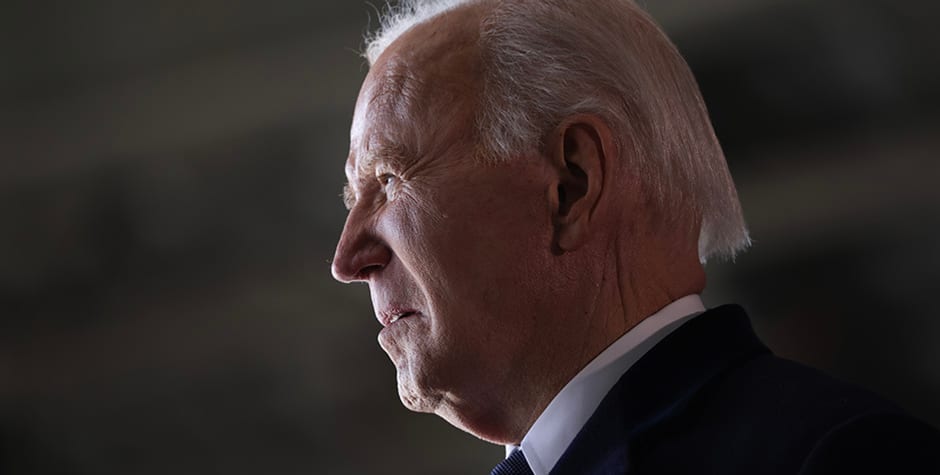ACLJ Files Third Amicus Brief in Support of Challenge to Intrusive Biden-Era Corporate Transparency Act
Listen tothis article
A few days ago, the ACLJ filed its third friend-of-the-court brief on behalf of our clients, We the People Convention and its president, Tom Zawistowski (who the ACLJ first defended in the IRS Tea Party targeting cases), in support of a constitutional challenge to the Corporate Transparency Act (CTA). As we explained earlier, the CTA requires tens of millions of small businesses, HOAs, nonprofits, and political organizations to submit sensitive “Beneficial Ownership Information” to the Financial Crimes Enforcement Network (FinCEN ) or face criminal penalties.
Congress enacted the CTA in 2021 with the purpose of making it more difficult for bad actors to commit illicit actions (including money laundering, terrorist acts, and other misconduct) through shell companies or business entities. The CTA requires businesses that meet specific criteria to report their beneficial ownership information to FinCEN. The information must include personal data, including the beneficial owner’s name, date of birth, address, and a unique identification number from an acceptable identification document (e.g., driver’s license or passport).
Six separate lawsuits have been filed challenging the law. The suits allege that the CTA is unconstitutional on multiple grounds, including (1) that it exceeds Congress’ lawmaking authority under the Commerce Clause and the Necessary and Proper Clause; (2) that it impermissibly burdens anonymous association in violation of the First Amendment; and (3) that it violates the Fourth Amendment due to its lack of individualized suspicion and pre-enforcement review.
There are currently two cases pending before federal courts of appeal – the Fifth and Eleventh Circuit Courts of Appeal. The Eleventh Circuit heard oral argument in September 2024, and a ruling is expected soon.
The Fifth Circuit case, in which we just filed, has taken a long and winding path. After one (motions) panel of the Fifth Circuit initially issued a stay of the district court’s injunction, a second (merits) panel of the Fifth Circuit vacated the stay and reinstated the injunction. That panel of the appeals court also ordered an expedited briefing schedule.
Then the case went up to the Supreme Court of the United States after the Biden Administration filed an Emergency Application for a Stay of the district court’s injunction. The ACLJ filed its second amicus brief opposing the government’s Application for Stay.
The Supreme Court granted the Stay and then sent the case back to the Fifth Circuit for briefing on the merits and oral argument, which will be held April 1, 2025.
That is where we just filed our most recent amicus brief. Our brief argues that the CTA raises a grave risk of government retaliation, especially against political advocacy groups that espouse disfavored political views. By giving the federal government access to personal information about beneficial owners, the CTA enables government officials to target them for discriminatory treatment.
We explained further:
The CTA is a compelled disclosure regime that broadly sweeps in associations protected by the First Amendment. When it comes to “‘a person’s beliefs and associations,’ ‘[b]road and sweeping state inquiries into these protected areas . . . discourage citizens from exercising rights protected by the Constitution.’” Americans For Prosperity Found. v. Bonta, 594 U.S. 595, 610 (2021) (quoting Baird v. State Bar of Ariz., 401 U.S. 1, 6 (1971) (plurality opinion)). It is immaterial that the beneficial owner information required by the CTA disclosure requirements may not be disclosed to the public. Assurances of confidentiality do not eliminate the burden on political association rights. Id. at 616. Fear of reprisal chills “peaceful discussions of public matters of importance.” Talley v. California, 362 U.S. 60, 65 (1960). In stripping the anonymity of beneficial owners, the CTA burdens the First Amendment right to political association.
While the federal courts will resolve the ultimate constitutionality of the CTA, the Trump Administration announced just a few days ago that it will not enforce the law. It also announced that the Treasury Department will issue new rules that will limit the CTA to foreign reporting companies only. As U.S. Secretary of the Treasury Scott Bessent declared, “This is a victory for common sense. . . . Today’s action is part of President Trump’s bold agenda to unleash American prosperity by reining in burdensome regulations, in particular for small businesses that are the backbone of the American economy.”
That is very good news, but the Treasury’s suspension of enforcement is only a temporary fix. Until either Congress repeals the CTA or the federal courts declare it unconstitutional, we will continue the fight against this terrible law.
